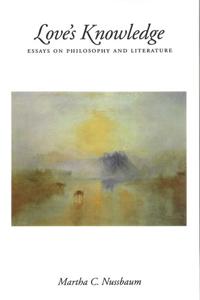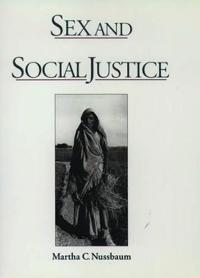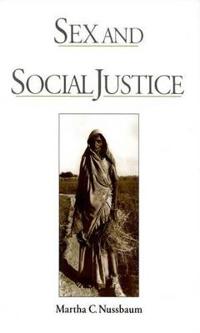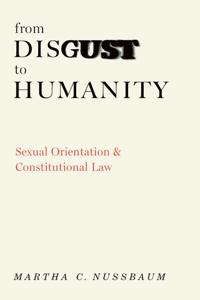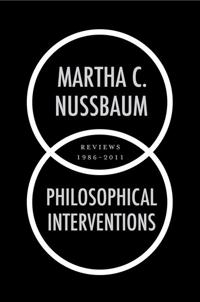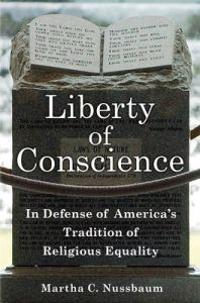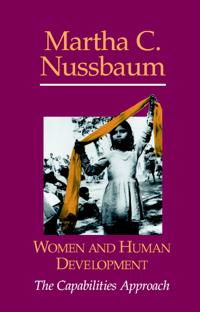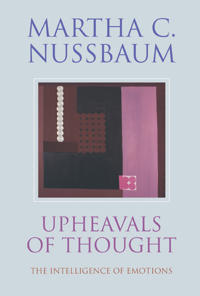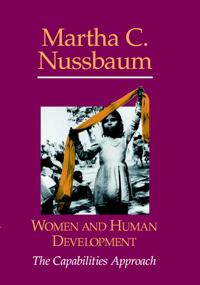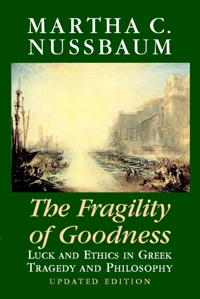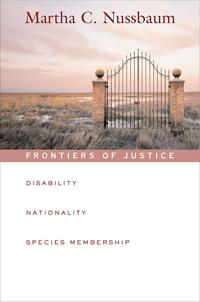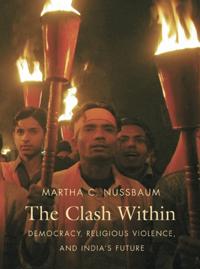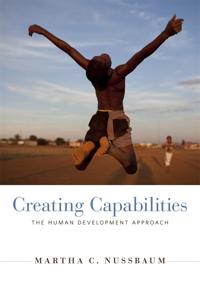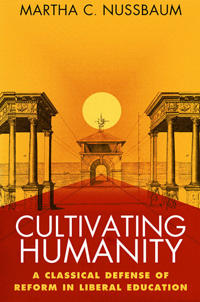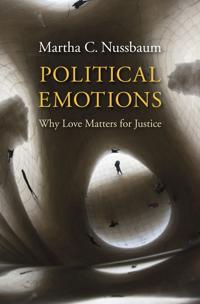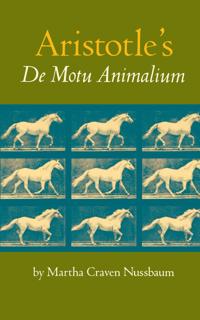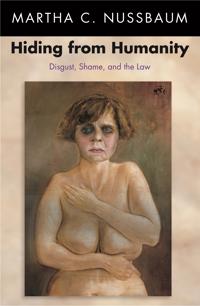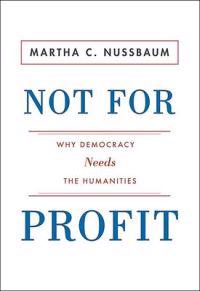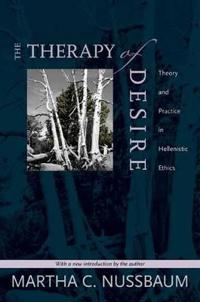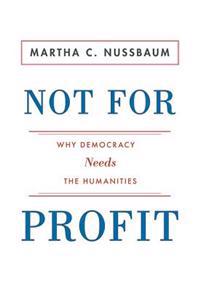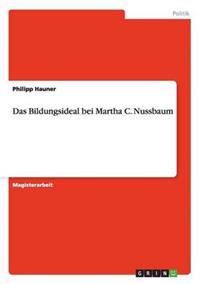Love's Knowledge (Häftad)
avMartha C. Nussbaum
ISBN: 9780195074857 - UTGIVEN: 199207This volume brings together Martha Nussbaum's published papers, some revised for this collection, on the relationship between literature and philosophy, especially moral philosophy. It also includes two new essays and a substantial Introduction. The papers, many of them previously not readily avail[...]
Sex and Social Justice (Inbunden)
avMartha C. Nussbaum
ISBN: 9780195110326 - UTGIVEN: 1999-02Writing with the rigorous argument and generous insight that characterizes all her work, Martha Nussbaum in these essays articulates a distinctive conception of feminism, one rooted in the liberal tradition of political thought but responsive to radical feminist critiques of this tradition. Growing [...]
Sex and Social Justice (Häftad)
avMartha C. Nussbaum
ISBN: 9780195112108 - UTGIVEN: 200010What sort of support do human capacities demand from the world, and how should we think about this support when we encounter differences of gender or sexuality? How should we think about each other across divisions that a legacy of injustice has created? In Sex and Social Justice, Martha Nussbaum de[...]
Animal Rights (Pocket)
avCass R. Sunstein, Martha C. Nussbaum, Cass R. Sunstein
ISBN: 9780195305104 - UTGIVEN: 200511Cass Sunstein and Martha Nussbaum bring together an all-star cast of contributors to explore the legal and political issues that underlie the campaign for animal rights and the opposition to it. Addressing ethical questions about ownership, protection against unjustified suffering, and the ability o[...]
From Disgust to Humanity (Inbunden)
avErnst Martha C Nussbaum
ISBN: 9780195305319 - UTGIVEN: 201004A distinguished professor of law and philosophy at the University of Chicago, a prolific writer and award-winning thinker, Martha Nussbaum stands as one of our foremost authorities on law, justice, freedom, morality, and emotion. In From Disgust to Humanity, Nussbaum aims her considerable intellectu[...]
Philosophical Interventions (Inbunden)
avMartha C. Nussbaum
ISBN: 9780199777853 - UTGIVEN: 201201This volume collects the notable published book reviews of Martha C. Nussbaum, a philosopher and high profile public intellectual who comments often on issues in philosophy, politics, gender equality, economics, and the law. Many of her engagements have been through the medium of the book review, w[...]
Liberty of Conscience (Häftad)
avMartha C. Nussbaum
ISBN: 9780465018536 - UTGIVEN: 201001From distinguished moral philosopher Martha Nussbaum, this is a historical and conceptual study of the American tradition of religious freedom. In one of greatest triumphs of the colonial and Revolutionary periods, the founders of the future United States overcame religious intolerance in favour of [...]
Women and Human Development (Häftad)
avMartha C. Nussbaum
ISBN: 9780521003858 - UTGIVEN: 200106In this major book Martha Nussbaum, one of the most innovative and influential philosophical voices of our time, proposes a new kind of feminism that is genuinely international, argues for an ethical underpinning to all thought about development planning and public policy, and dramatically moves bey[...]
Upheavals of Thought (Pocket)
avMartha C. Nussbaum
ISBN: 9780521531825 - UTGIVEN: 200306Emotions shape the landscape of our mental and social lives. Like geological upheavals in a landscape, they mark our lives as uneven, uncertain and prone to reversal. Are they simply, as some have claimed, animal energies or impulses with no connection to our thoughts? Or are they rather suffused wi[...]
Women and Human Development (Inbunden)
avMartha C. Nussbaum
ISBN: 9780521660860 - UTGIVEN: 2000-04In this major book Martha Nussbaum, one of the most innovative and influential philosophical voices of our time, proposes a new kind of feminism that is genuinely international, argues for an ethical underpinning to all thought about development planning and public policy, and dramatically moves bey[...]
The Fragility of Goodness (Pocket)
avMartha C. Nussbaum
ISBN: 9780521794725 - UTGIVEN: 200101This book is a study of ancient views about âmoral luckâ. It examines the fundamental ethical problem that many of the valued constituents of a well-lived life are vulnerable to factors outside a personâs control, and asks how this affects our appraisal of persons and their lives. Th[...]
Frontiers of Justice (Pocket)
avMartha C. Nussbaum
ISBN: 9780674024106 - UTGIVEN: 200704Theories of social justice are necessarily abstract, reaching beyond the particular and the immediate to the general and the timeless. Yet such theories, addressing the world and its problems, must respond to the real and changing dilemmas of the day. A brilliant work of practical philosophy, "Front[...]
The Clash within (Häftad)
avMartha C. Nussbaum
ISBN: 9780674030596 - UTGIVEN: 200810While America is focused on religious militancy and terrorism in the Middle East, democracy has been under siege from religious extremism in another critical part of the world. As Martha Nussbaum reveals in this penetrating look at India today, the forces of the Hindu right pose a disturbing threat [...]
Creating Capabilities (Häftad)
avMartha C. Nussbaum
ISBN: 9780674072350 - UTGIVEN: 201305If a country's Gross Domestic Product increases each year, but so does the percentage of its people deprived of basic education, health care, and other opportunities, is that country really making progress? If we rely on conventional economic indicators, can we ever grasp how the world's billions of[...]
Cultivating Humanity (Häftad)
avMartha C. Nussbaum
ISBN: 9780674179493 - UTGIVEN: 199809How can higher education today create a community of critical thinkers and searchers for the truth that transcends the boundaries of class, gender and nation? In this book the author argues that contemporary curricular reform is already producing such "citizens of the world" in its advocacy of diver[...]
Political Emotions (Pocket)
avMartha C. Nussbaum
ISBN: 9780674503809 - UTGIVEN: 2015-05Martha Nussbaum asks: How can we sustain a decent society that aspires to justice and inspires sacrifice for the common good? Amid negative emotions endemic even to good societies, public emotions rooted in love--intense attachments outside our control--can foster commitment to shared goals and keep[...]
Aristotle's "De Motu Animalium" (Häftad)
avMartha C. Nussbaum
ISBN: 9780691020358 - UTGIVEN: 198603The aim of this book is to ask through a study of one of his most complicated treatises on explanation, how far, and in what sense, the demands of the 'scientific person' are Aristotle's.[...]
Hiding from Humanity (Häftad)
avMartha C. Nussbaum
ISBN: 9780691126258 - UTGIVEN: 200601Should laws about sex and pornography be based on social conventions about what is disgusting? Should felons be required to display bumper stickers or wear T-shirts that announce their crimes? This powerful and elegantly written book, by one of America's most influential philosophers, presents a cri[...]
Not for Profit (Inbunden)
avMartha C. Nussbaum
ISBN: 9780691140643 - UTGIVEN: 201004In this short and powerful book, celebrated philosopher Martha Nussbaum makes a passionate case for the importance of the liberal arts at all levels of education. Historically, the humanities have been central to education because they have rightly been seen as essential for creating competent democ[...]
The Therapy of Desire (Häftad)
avMartha C. Nussbaum
ISBN: 9780691141312 - UTGIVEN: 200907The Epicureans, Skeptics, and Stoics practiced philosophy not as a detached intellectual discipline, but as a worldly art of grappling with issues of daily and urgent human significance: the fear of death, love and sexuality, anger and aggression. Like medicine, philosophy to them was a rigorous sci[...]
Not for Profit (Häftad)
avMartha C. Nussbaum
ISBN: 9780691154480 - UTGIVEN: 201203In this short and powerful book, celebrated philosopher Martha Nussbaum makes a passionate case for the importance of the liberal arts at all levels of education. Historically, the humanities have been central to education because they have been seen as essential for creating competent democratic ci[...]
Not for Profit: Why Democracy Needs the Humanities (e-bok)
avMartha C. Nussbaum
ISBN: 9781400842018In this short and powerful book, celebrated philosopher Martha Nussbaum makes a passionate case for the importance of the liberal arts at all levels of education. Historically, the humanities have been central to education because they have been seen as essential for creating competent demo[...]
Das Bildungsideal Bei Martha C. Nussbaum (Häftad)
avPhilipp Hauner
ISBN: 9783656574811 - UTGIVEN: 2014-02Philosophie der Menschenrechte von Martha C. Nussbaum (Häftad)
avAdam Galamaga
ISBN: 9783828833722 - UTGIVEN: 2014-07

